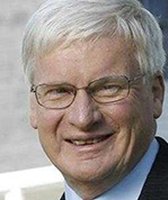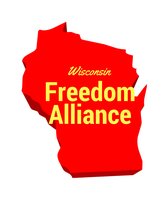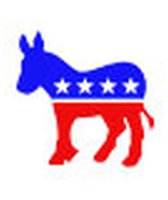Stand up for the facts!
Our only agenda is to publish the truth so you can be an informed participant in democracy.
We need your help.
I would like to contribute

Gov. Scott Walker shook students' hands at La Casa de Esperanza in Waukesha on April 25, 2013
As the Legislature prepares to vote on Gov. Scott Walker’s plan to expand school choice beyond Milwaukee and Racine -- and ramp up public funding for private schools already in the program -- supporters and opponents are engaged in a familiar battle.
Consider it a game of claim vs. counterclaim. Or, an adult version of a playground spat.
"Does not!" says one side.
"Does too!" says the other.
On some of these, there’s no one clear answer, so we’ll send the Truth-O-Meter back inside while we try to sort out some of the disputes through interviews with experts and leading figures on both sides, and a review of test scores and research.
Dispute #1: Student achievement
The private-school choice program, launched in 1990 in Milwaukee and 2011 in Racine, was intended to improve results for poor city children in public schools by allowing them to attend private or religious schools with publicly funded vouchers.
So when it comes to measuring performance, the claims fly fast and furious.
The School Administrators Alliance, an opponent of expansion, says the choice program does not improve student achievement. But Walker says it’s a myth that choice schools don’t perform better -- and may perform worse -- than public schools.
We found that public schools can point to a consistent advantage on single-year test scores, while choice advocates scored some wins in a study that tracked achievement over time.
But from what we can see, neither school setting has significantly raised achievement levels in Milwaukee, where students generally have struggled compared with the rest of the state.
In 2011, "students in Milwaukee's school choice program performed worse than or about the same as students in Milwaukee Public Schools in math and reading on the latest statewide test," the Journal Sentinel reported.
In 2012 and 2013, the release of statewide test results showed that students attending public schools were more proficient, as a group, than their private school-choice counterparts on reading and math.
In the 2013 round, voucher supporters would prefer to see only the test scores of low-income MPS students compared to voucher students, which gives the private schools a tiny advantage in reading. The Department of Public Instruction maintains that because the income limit to participate in the choice program was raised two years ago, it's appropriate to compare all children.
But researchers who conducted multiple state-mandated studies of the Milwaukee choice program reject such "snapshot"-in-time comparisons as a basis for comparing public vs. choice school performance. One reason: students often switch between choice and Milwaukee Public Schools, and average student performance is affected by the shifting demographic profile of student populations.
Authors of the University of Arkansas-directed studies, known as the School Choice Demonstration Project, used sampling techniques to track similar groups of students from 2007 to 2011.
They found that students in private voucher schools made gains in reading in 2010-'11 that were higher than those of a matched sample of peers in Milwaukee Public Schools, while math achievement growth was similar in all years.
However, the reading advantage was for just one year out of four studied and researchers cautioned that some evidence suggested it was due to the introduction of a new state testing requirement for private choice schools.
Again using the multi-year approach of comparing a sample of students, the Demonstration Project found that enrolling in a private high school in the choice program "increases the likelihood of a student graduating from high school, enrolling in a four-year college, and persisting in college by 4-7 percentage points."
That "attainment" advantage is often cited by backers of private-school choice.
But that finding came with several caveats, including the fact that a majority of students
who were enrolled in private choice schools in the 9th grade were no longer in a choice school by the time they reached 12th grade. The results, therefore, should be interpreted as the effect of "exposure" to choice schools rather than long-term persistence in that sector, the study found.
So, despite the blanket statements by both sides, the research warns against drawing stark conclusions favoring either side.
Dispute #2: Special-needs students
Walker says "choice schools cannot deny special needs students" admission. But a coalition called Stop WI Voucher School Expansion says that only choice schools "are able to reject special-needs students."
The subtext here is the fact -- both sides agree on this point -- that private schools usually serve fewer special-needs students than public schools.
Here’s the bottom line: Schools in the choice program cannot just turn away students with disabilities who want to attend.
But many cannot offer the range of services or make the physical accommodations that public schools can -- so they can make it clear to parents that their child may not receive the desired help.
At the end of the day, parents have the right to keep their child at a choice school if they are willing to accept what the school has to offer. At that point, though, many will turn to public schools.
"Obviously, the ability to accommodate a special needs child depends upon the needs of the child," said Jerry Topczewski, a spokesman for the Milwaukee Archdiocese, a major player in educating choice students. "For example, if a child needed special bathroom facilities that were not present in the building, the school may not be able to meet the child’s needs."
The state Department of Public Instruction emphasizes that, in the public system, a student’s "home" school district must educate special needs students and pay for the services no matter the cost.
Choice proponents correctly note that public school districts can turn away special-needs students who are seeking to transfer in from their home district under the state’s open-enrollment rules. Districts can do so only if there are costs above the basic amount, not just because the child has a disability, according to DPI.
Dispute #3: Background checks of school staff
The "Stop" expansion group says that only public schools are "required to conduct background checks of all school staff."
But School Choice Wisconsin, a leading advocate for the program, says "it’s a myth that schools in the choice program are not required to perform background checks."
Let’s try to get everybody on the same page.
It’s true, we found, that state law requires checks of certain public school staff, but does not require the same in private schools.
Here’s what John Johnson of the state Department of Public Instruction told us: "State law requires all public schools to employ licensed teachers, administrators, pupil services professionals, and some others. The law requires the DPI to conduct a background check on every applicant for a Wisconsin educator license. So, in public schools all licensed staff have background checks."
Beyond that, local public school districts can conduct their own background checks on all their other employees. MPS, for example, performs background checks on all employees and volunteers, and requires background checks on all contractors who provide services directly in schools.
Johnson said, "There is no background check requirement in state law for choice schools."
Agree with that, Jim Bender at School Choice Wisconsin?
Yes, but schools in the choice program do background checks that are required by the agencies that accredit them and insurance companies that cover them, Bender said. And accreditation is required under the state law setting up the choice program.
We called two major accrediting agencies -- the Milwaukee Archdiocese and Wisconsin Religious and Independent Schools Accreditation. They both said they require the checks of all school staff and volunteers.
"They are crying for a solution to something that is not a problem," Bender said of choice critics. "It’s being done now."
Ultimately, the debate on these issues and more comes down to whether students improve their performance, noted Howard Fuller, the former Milwaukee Public Schools superintendent who is a leading private-school choice advocate and helps run a charter school.
"The most important thing to look at is the growth of students," Fuller told us. "We get kids from MPS or from private schools who are behind. MPS gets kids from our schools who are behind."
He added: "At some point we have to quit pointing fingers at each other and realize we are all dealing with the same students."
Our Sources
Wisconsin Governor Scott Walker, press release, "Transforming Education: 5 Common Myths About School Choice," March 2013
School Choice Wisconsin,"Common Myths in the Parental Choice Program," 2013
School Administrators Alliance,"Private School Voucher Expansion: The Wrong Choice for Wisconsin," 2013
University of Arkansas, Department of Education Reform, Milwaukee Parental Choice Program Evaluation, School Choice Demonstration Project, accessed April 25, 2013
Email exchange Tony Tagliavia, media manager, Division of Community Engagement, Milwaukee Public Schools, April 26, 2013
Interview with John W. Johnson, Wisconsin Department of Public Instruction director of education information services, April 26, 2013
Interview with Monica Murphy, managing attorney, Milwaukee office, Disability Rights Wisconsin, April 23, 2013
Interview with Jim Bender, president of School Choice Wisconsin, Nycole Stawinoga, director of research and legislative affairs, April 25, 2013
Interview with Miles Turner, executive director, Wisconsin Association of School District Administrators, April 26, 2013
Interview with Howard Fuller, Distinguished Professor of Education and Director of the Institute for the Transformation of Learning, Marquette University, April 25, 2013
Email interview with Jerry Topczewski, Chief of Staff, Office of the Archbishop
Archdiocese of Milwaukee, April 25, 2013
Interview with Beatrice Weiland, executive director, Wisconsin Religious and Independent Schools Accreditation, April 22, 2013
Milwaukee Journal Sentinel,"Voucher students improve on reading, study finds," Feb. 26, 2012
Milwaukee Journal Sentinel, "Choice schools not outperforming MPS," March 29, 2011
Stop WI Voucher School Expansion, Facebook page, accessed April 23, 2013
Interview with Kit Kerschensteiner, managing attorney, Madison office of Disability Rights Wisconsin, April 22, 2013
State Legislative Audit Bureau, "Test Score Data for Pupils in the Milwaukee Parental Choice Program," August 2012
Public Policy Forum, "Choice Schools have much in common with MPS, including student performance," February 2013
Milwaukee Journal Sentinel,"Proficiency plummets at vouchers schools, MPS with new test scoring," Oct. 24, 2012
Milwaukee Journal Sentinel,"Wisconsin voucher students lag in latest test," April 23, 2013
Email exchange with Heather Heather Robertson Wright, Director, Corporate Affairs,
InfoMart, April 26, 2013















































